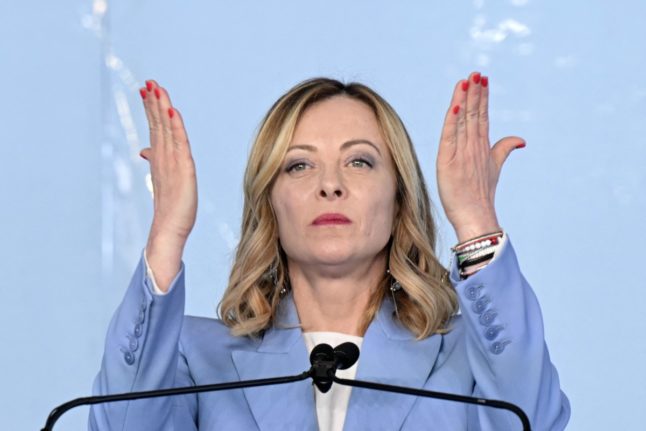Italy's populist coalition has submitted its draft 2019 budget to the European Commission, forecasting an increase in the public deficit to 2.4 percent of gross domestic product.
The increase is essentially due to what the government calls its “people's budget”, a series of spending, pension and tax changes that will cost €37 billion, of which €22 billion will be paid for by expanding the deficit.
Here are the main points:
Pension reform
The budget modifies the previous Fornero pension law to make it easier to retire earlier.
It introduces the “100 quota”: a state pension if the number of years of contributions paid plus age equals 100. Around 400,000 people will then be able to retire at 62, having worked at least 38 years. The law currently sets retirement at 65.
Women will still be able to retire at 58 if employed and at 59 if self-employed, provided they have worked for 35 years.
The reform will come into effect in February and cost €7 billion in 2019, according to Deputy Prime Minister Matteo Salvini of the League party.
The government hopes that more people retiring will provide more jobs for the young, with unemployment for those aged 15-34 at nearly 20 percent.
Citizen's income
The budget also provides for a universal basic income, the populist Five Star Movement's (M5S) main campaign promise.
The monthly payment of €780 will be made to the least well-off and hopes to help people get back on the job market. It is only for Italians or foreigners who have been legally resident for at least five years.
The budget also provides for a “citizen's pension” which raises the minimum pension to €780 a month, “returning dignity to pensioners”, according to M5S leader Luigi Di Maio.
The two measures will affect around 6 million people and cost €9 billion, with another billion to be spent on improving job centres.
Tax amnesty
The two ruling parties agreed to a tax amnesty after a heated debate, with the anti-establishment M5S having felt such a measure would favour the rich and be against its ideals.
It will affect anyone who has not paid, declared or under-declared taxes. The treasury expects to reap €2.2 billion from people thus putting their books in order in 2019.
Flat tax
A flat-rate tax of 15 percent will be applied to more than one million self-employed and artisans with a turnover of under €65,000.
Bank victims fund
A €1.5 billion fund will be created to compensate small investors who have lost money because of bank bankruptcy or mismanagement.
Public investments
Technocrat Prime Minister Giuseppe Conte plans to invest another €15 billion in “the biggest Italian public investment plan ever” over the next three years, on top of €38 billion already planned over the next 15 years.
No VAT hike
The previous budget set an automatic increase in value added tax, considered a tax on the poor. The government will cancel the automatic hike, slashing €12.5 billion in annual revenue.
Spending cuts on migrants and lawmakers
The budget aims to slash the cost of running ministries by €500 million a year. So-called “golden” pensions for lawmakers of over €4,500 net a month will also be reduced, saving the government around €330 million a year, according to M5S sources.
The government will reduce spending on managing and housing migrants by another €500 million.
It will also raise taxes on gambling and increase privatisations, generating a projected €640 million next year.
READ ALSO: Italy's budget clash with Brussels: What you need to know

Photo: Gerard Cerles/AFP
By AFP's Céline Cornu



 Please whitelist us to continue reading.
Please whitelist us to continue reading.